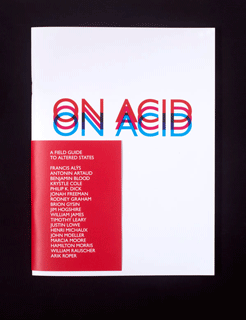
"Edward Glover showed that anything could serve as a drug, and moreover Lacan was very explicit when he excluded drug addicts from the psychoanalytic scene, perhaps wrongly, given Freud's impressive though officially discarded texts on cocaine. But Glover showed that anything could serve as a drug, including, we could add, work, the "workaholic" syndrome, or athletic training, or piano practice, and anything that involves repetition, need, lack. I don't mean that a new characteristic of drugs as drugs is emerging - on the contrary, drugs respond to an internal appeal that is probably already present in all of us. One of my questions is: why are we equipped with receptors, as if built for drugs? In other words, we are all potentially subject to addiction, constructed as we are according to addictive qualities of attachment and need. What I find interesting are not only the abyssal nuances of desires, urges, or destructive jouissance, but also those of the seductiveness of technology and the often crushing ethos of work."



No comments:
Post a Comment